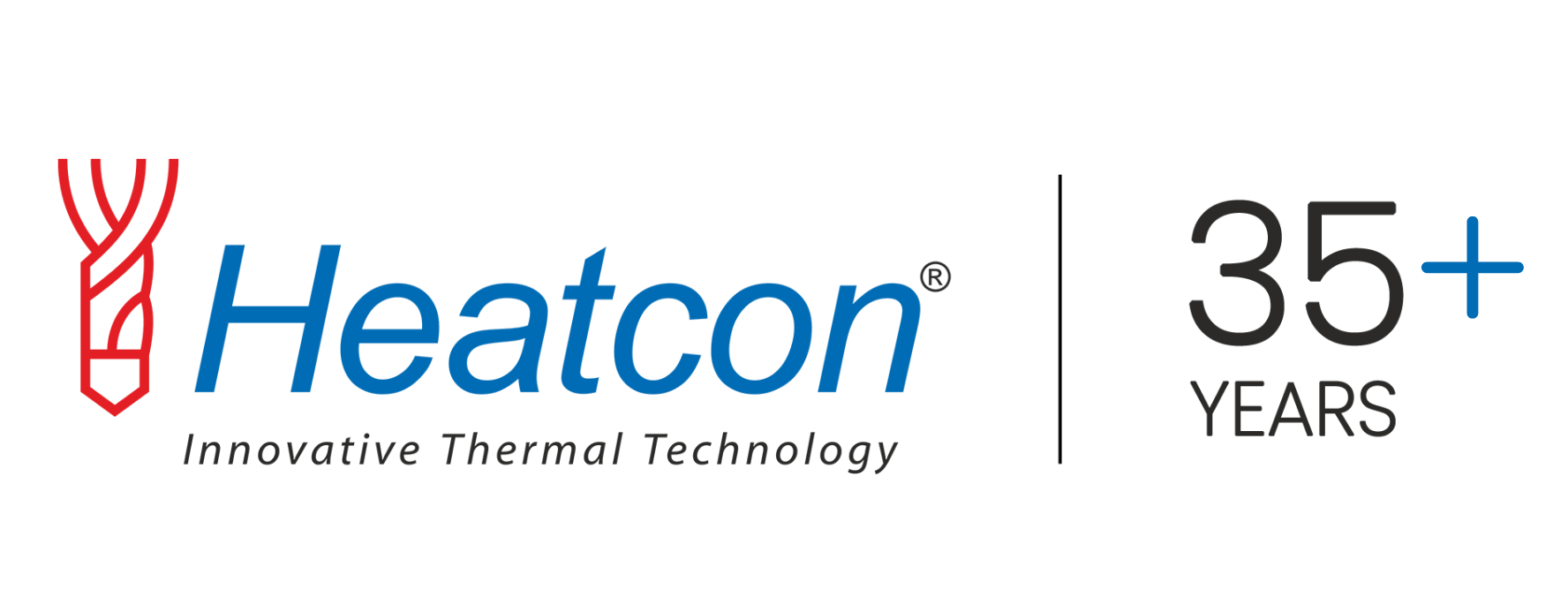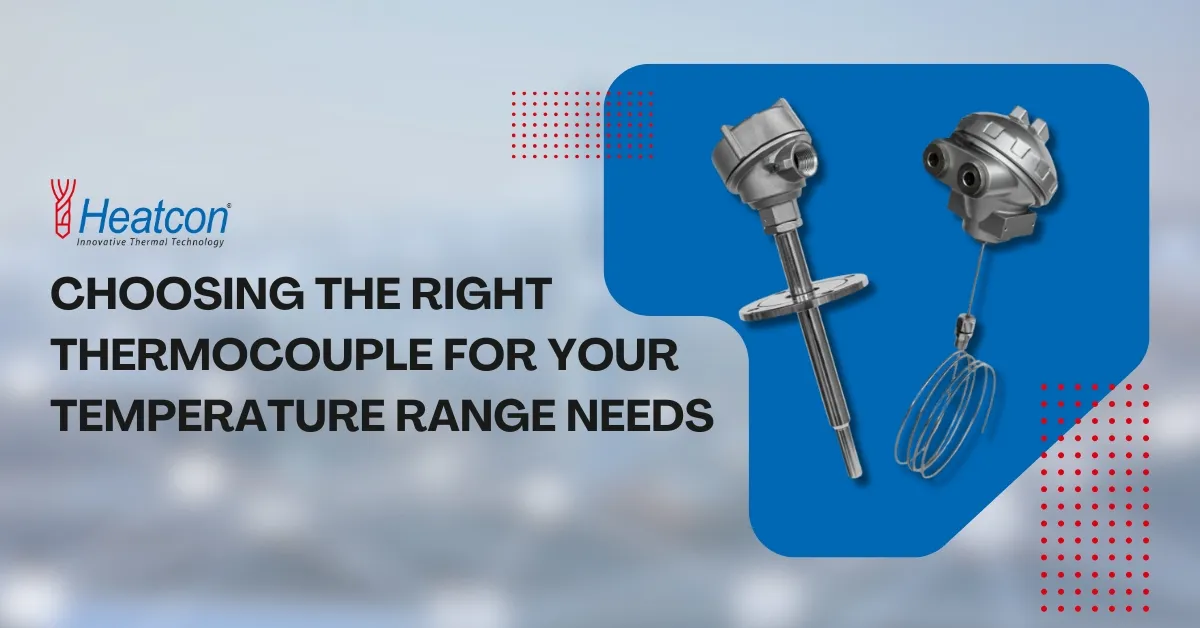Thermocouple Temperature Range & Cable Types for Optimal Temperature Measurement
Temperature measurement tends to play a crucial role in a gamut of industries. Thermocouples have become one of the most trusted sensors because of their broad temperature range & versatile nature. As per recent data from Global Market Insights, the global thermocouple market has been estimated to grow at over 5 percent CAGR, reaching a valuation of 3 billion dollars by the year 2026, steered mainly by the rising demand for precise temperature monitoring solutions across different sectors like manufacturing & chemical processing. Such growth emphasizes the essential need for reliable thermocouples, which provide a wide temperature range with dependable accuracy in demanding applications.
Understanding Thermocouple Temperature Range
The thermocouple temperature range varies as per thermocouple type, material, & insulation, with each thermocouple category capable of measuring specific ranges suited to specific applications. Common thermocouple types include Type K, Type J, Type T, & Type E. They differ in their temperature ranges. For instance, Type K can measure from -200 degrees Celsius to +1260 degrees Celsius, making them best suited for general-purpose applications. In contrast, Type T, with a range from -250 degrees Celsius to +400 degrees Celsius, are better suited for lower temperature applications because of their copper construction that gives excellent stability at cooler temperatures. Selecting the right thermocouple temperature range is highly essential for achieving accurate readings, as using a thermocouple outside its optimal range can lead to compromised accuracy & reliability.
Picking the Right Thermocouple for Your Temperature Range Needs
Selecting a thermocouple requires a keen understanding of the thermocouple temperature range & the specific environment in which it will operate. Factors like temperature extremes, the material composition of the thermocouple, & thermocouple cable insulation all play a part in determining the right fit for an application. Industrial settings, for instance, might need Type K for high-heat environments, while lab environments might gain from Type T for precision in cooler temperatures. When selecting a thermocouple, it is crucial to check thermocouple cable selection guide to ensure compatibility with both the temperature range & the intended equipment. Such a selection process enhances performance & also extends the lifespan of the thermocouple, maximising its reliability under demanding conditions.
Thermocouple Cable Types: A Guide to Compatibility & Functionality
The effectiveness of a thermocouple is not limited to the sensor itself; the type of cable used can greatly affect performance. Thermocouple cable types include extension & compensating cables, each offering specific attributes for temperature measurement. Extension cables, for example, are usually designed to connect thermocouples to measurement equipment over long distances while maintaining temperature accuracy. Each of these cable types might differ in insulation material. This can impact the temperature range it supports & its resistance to environmental factors such as moisture or chemicals. Understanding thermocouple cable types is highly essential for applications, which need both precise readings as well as durability.
Choosing the Right Thermocouple Cable
When choosing the right thermocouple cable, it is crucial to match it to the thermocouple temperature range & environmental requirements of your application. The right cable can help maintain thermocouple accuracy and reliability, while the wrong choice can result in degraded performance. Choosing the right thermocouple cable is a process, which considers factors like the surrounding environment, cable insulation material, & compatibility with the thermocouple itself. By adhering to a comprehensive thermocouple cable selection guide, you can ensure the highest performance & reliability.
Thermocouple Cable Selection Guide
A comprehensive thermocouple cable selection guide helps users navigate the numerous factors involved in picking the right cable. Such guide outlines key considerations such as temperature compatibility, insulation resistance, & chemical resistance. For example, cables with PVC insulation are often chosen for their flexibility & moderate heat resistance, while fiberglass-insulated cables give higher temperature tolerance for harsher environments. By following a thermocouple cable selection guide, you can optimise your setup, achieving better longevity & minimising issues related to signal interference or inaccurate temperature readings.
Thermocouple Cables Uses Across Industries
Thermocouple cables are used across a wide range of industries, from automotive & aerospace to food processing & energy. In automotive applications, such cables are utilised for monitoring exhaust gas temperatures, while in the food industry, these play a crucial role in maintaining safe temperatures during production. Each application gains from varied thermocouple cable types to suit specific temperature ranges & conditions, ensuring optimal safety & efficiency.
Thermocouple Wire Guide: Selecting the Right Insulation
The thermocouple wire guide provides essential insights into selecting the best insulation material based on the intended application. Some of the common insulation materials tend to include PVC, fiberglass, Teflon, & ceramic, each providing unique benefits. Thermocouple cable insulation with PVC is usually picked for low-temperature applications, while Teflon & fiberglass insulations are preferred for higher temperature settings. The right thermocouple cable insulation improves resistance to environmental stressors, ascertaining that the thermocouple performs consistently even in challenging conditions.
Thermocouple Accuracy and Reliability
Thermocouple accuracy and reliability depend on several factors, including its type, material of the thermocouple cable, & the quality of thermocouple cable insulation. For industries where accurate temperature readings are highly crucial, like pharmaceuticals & aerospace, picking the aptest thermocouple with reliable insulation is essential for maintaining consistent precision over time. Using a high-quality thermocouple and carefully selected cable minimizes drift and ensures longevity, contributing to better operational efficiency & safety.
Ensuring Thermocouple Compatibility with Equipment
When integrating a thermocouple into an existing setup, thermocouple compatibility with equipment is another critical consideration. These sensors are usually paired with specific data loggers or temperature controllers, and using the right thermocouple cable types can greatly impact performance. Selecting a cable, which aligns with both the temperature range & the specific requirement of the equipment helps maintain measurement accuracy & reduces the risk of equipment failure.
Procure High-Quality Thermocouples from Heatcon Sensors
At Heatcon Sensors, you can find an extensive range of high-quality thermocouples designed to meet diverse thermocouple temperature range needs. Each of our thermocouples is crafted with precision to offer the best accuracy & reliability in temperature monitoring. The thermocouple wire guide available with us assists you in selecting the ideal type of thermocouple & thermocouple cable for your application, ensuring compatibility with industry standards & environmental demands. We provide durable thermocouples. We also give you reliable guidance to ensure each purchase is suited for its intended use. Explore our full selection & find the perfect thermocouple solution for your temperature monitoring needs. We have a range of high-performance thermocouples that cover diverse temperature needs, ensuring compatibility across varied industrial applications.


